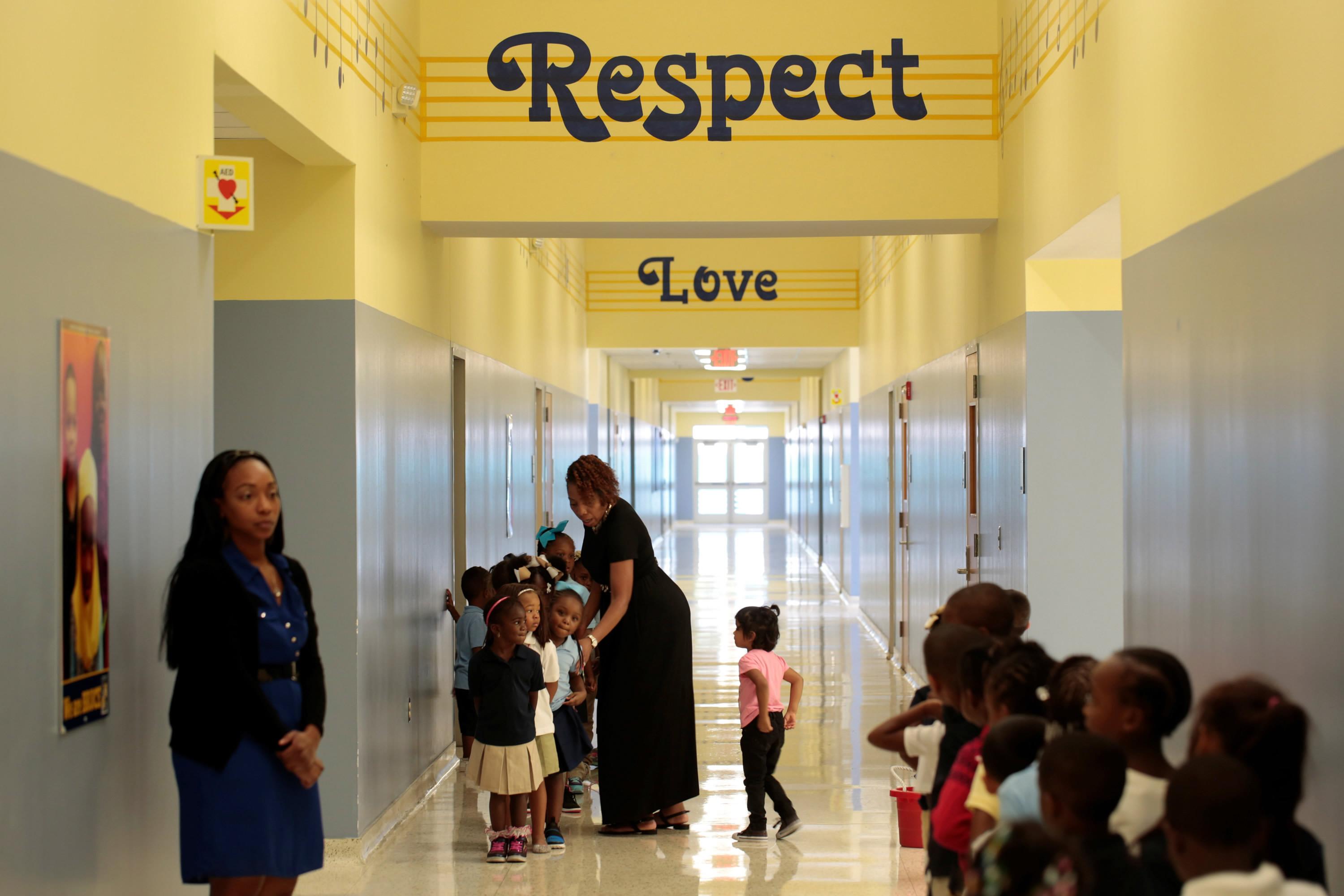
World
16:13, 27-Sep-2017
Global 'learning crisis' hampering development, World Bank warns
by Sim Sim Wissgott

A global “learning crisis” is ensuring that millions of children do not get appropriate schooling or leave school without necessary skills and knowledge, representing a “wasted development opportunity,” according to a new World Bank report, which has called for concerted efforts to tackle the problem.
Despite steps to improve education in many countries, some 260 million children worldwide are still neither enrolled in primary nor secondary school because of poverty, gender, disability or conflict, according to the World Bank’s 2018 World Development Report published Tuesday.

Students sit in a classroom at a school in the Quneitra countryside, Syria, September 12, 2017. /Reuters Photo
Students sit in a classroom at a school in the Quneitra countryside, Syria, September 12, 2017. /Reuters Photo
And even those who attend school sometimes get little out of it: In countries like India, Uganda, Iraq or Kenya, more than half of Grade Two children – aged seven or eight – were unable to read a simple word or perform two-digit number subtractions.
“In many countries and communities learning isn’t happening,” World Bank President Jim Yong Kim deplored.
“This is a moral and economic crisis that must be addressed immediately.”
- World Bank President Jim Yong Kim.
“Schooling without learning is a terrible waste of precious resources and of human potential. Worse, it is an injustice. Without learning, students will be locked into lives of poverty and exclusion.”
Higher pay, longer life
Better education means better jobs and higher pay. But it also leads to more political engagement – getting involved in their countries’ affairs – and healthier and longer lives, the report said.
This was not just the case in developing countries: The World Bank found that life expectancy in the US increased across all groups depending on the number of years spent in school. Presumably, those with more education were less likely to lead unhealthy lifestyles and abuse alcohol, cigarettes or drugs.

A class at Desert Stars School, near the Bedouin city of Rahat
in Israel's southern Negev Desert, September 12, 2017. /Reuters Photo
A class at Desert Stars School, near the Bedouin city of Rahat in Israel's southern Negev Desert, September 12, 2017. /Reuters Photo
“This learning crisis is widening social gaps instead of narrowing them,” the World Bank noted.
“Young students who are already disadvantaged by poverty, conflict, gender or disability reach young adulthood without even the most basic life skills.”
From Sweden to Britain and Mexico, those with less education were more likely to turn to crime.
Teenage pregnancy rates meanwhile dropped as girls received more schooling in places like Turkey, Brazil, Colombia, Kenya, Malawi, and Peru, while children of educated mothers tended to be healthier and better educated.
Good for society too
Not just individuals benefit directly from a better education. “For societies, (education) drives long-term economic growth, reduces poverty, spurs innovation, strengthens institutions, and fosters social cohesion,” noted Kim.
To tackle the education gap, more resources need to be poured into recruiting good teachers, training them and using technology in the classroom to aid learning, the World Bank urged.

B.K. Bruce Elementary School students go from one class to the next after the school was closed for two weeks in the aftermath of tropical storm Harvey in
Houston, Texas, US, September 12, 2017. /Reuters Photo
B.K. Bruce Elementary School students go from one class to the next after the school was closed for two weeks in the aftermath of tropical storm Harvey in Houston, Texas, US, September 12, 2017. /Reuters Photo
But there also needs to be better data measuring pupils’ abilities when they leave school, to see where there are gaps and where there might need to be a rethink in policy. Ultimately, it is also up to governments, business leaders and civil society to back education for all.
“Developing countries are far from where they should be on learning. Many do not invest enough financial resources and most need to invest more efficiently,” said Jaime Saavedra, the World Bank’s senior director for education.
“Education reform is urgently needed and requires persistence,” he added.
"Government, media, entrepreneurs, teachers, parents, and students... all have to value and demand better learning.”
- Jaime Saavedra, World Bank senior director for education

SITEMAP
Copyright © 2018 CGTN. Beijing ICP prepared NO.16065310-3
Copyright © 2018 CGTN. Beijing ICP prepared NO.16065310-3